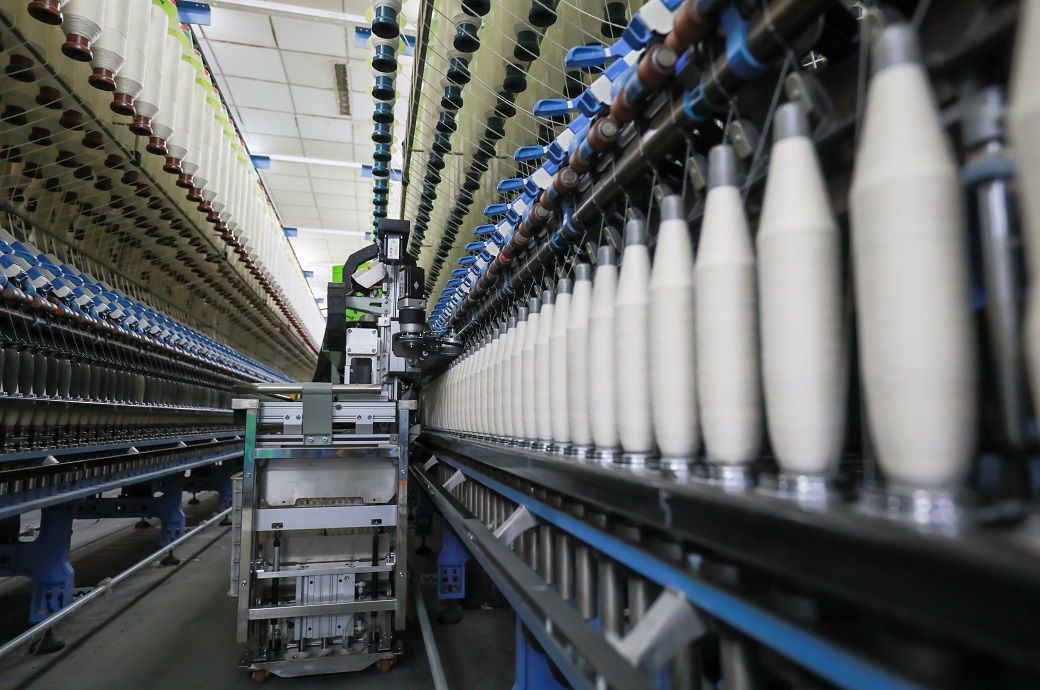

Key demands include the assurance of fibre supplies such as cotton, polyester, and viscose at internationally competitive prices and global standards. Additionally, the industry is seeking subsidy support to aid in technical upgradation.
RK Vij, emeritus president of the Textile Association of India (TAI) and secretary general of the Polyester Textile and Apparel Industry Association (PTAIA), told Fibre2Fashion, “The government should ensure raw material supply at international prices and quality, so our garment industry stays competitive with suppliers from other exporting countries.” He said that the Finance Minister should raise duties on garments to discourage imports of finished products.
Vij also said that the Remission of Duties and Taxes on Exported Products (RoDTEP) Scheme should be extended beyond September 2024 when it is set to end. He highlighted the problem of the inverted duty structure of GST. Although it will not be part of the Union Budget, he emphasised the need to streamline the tax rates of various textile products. The tax rate should be higher on downstream products.
Rakesh Mehra, chairman of The Confederation of Indian Textile Industry (CITI), expects the new government to formulate policies that ensure the availability of raw materials at internationally competitive prices. The industry needs a scheme similar to Technology Upgradation Fund Scheme (TUFS) for the revival of investment. There is significant potential to revive investment in the processing and value-addition stages of the textile sector.
Mehra also demanded a second version of the Production Linked Incentive (PLI) scheme for more products. He is also of the opinion that the government should expedite negotiations to conclude free trade agreements (FTAs) with important countries like the UK and the EU.
Dr. SK Sundararaman, chairman of The Southern India Mills’ Association (SIMA), said that the Indian textile industry is currently facing unfair disadvantages, particularly in light of preferential trade taxation and tax exemption policies that benefit competitors from other countries. He called for the availability of high-quality cotton at prices 10 per cent lower than the international market.
He further added that the government should remove import duty on cotton and allow the free availability of international cotton in the Indian market. Additionally, the government should take steps to double cotton production in the country by boosting the yield per acre, making cotton cultivation more financially rewarding for farmers.
Sanjay Garg, President of Northern India Textile Mills’ Association (NITMA), said that the Finance Minister should impose minimum import price (MIP) for all types of fabric in the coming budget. MIP on selected HSN codes has failed to restrict flooding of fabric imports in the country, as it has opened the door to manipulation in declaration and actual imports. Likewise, the implementation of quality control order (QCO) on man-made fibres and polyester yarn has also encouraged flooding of polyester fabric imports. Since there is no QCO on fabric and garments, they are being imported in large quantities. Garg also reiterated the industry’s demand of removal of duty on imported cotton. He said that Indian industry is lagging behind due to costly cotton. The government is increasing minimum support price (MSP), which is raising prices of Indian cotton. Currently, “our cotton is at least 10 per cent costlier than global rates. Earlier, domestic prices were 10 per cent lower than the global market. Therefore, there is no meaning to continue import duty on cotton imports.”
Jaikrishna Pathak, President, The Bombay Yarn Merchants Association and Exchange Ltd emphasised on the need to streamline polyester textile value chain. “Costlier fibre and yarn is not good for the downstream industry. The government should restrict imports of fabric to save the domestic industry.” He also demanded reduction of GST on raw material to resolve the problem of inverted duty structure.
Fibre2Fashion News Desk (KUL)